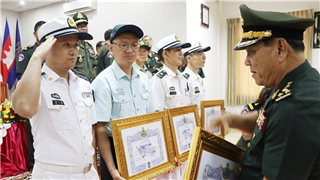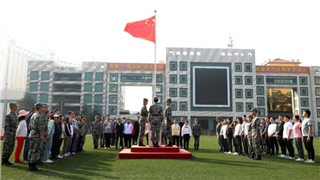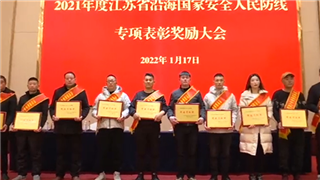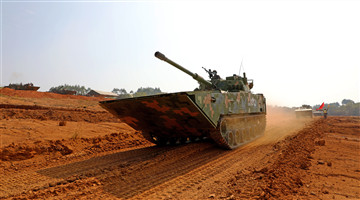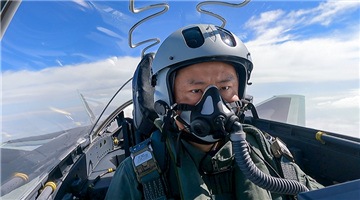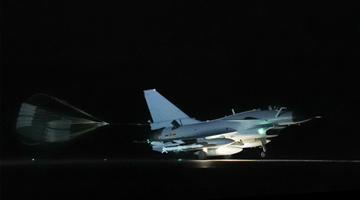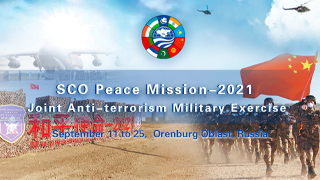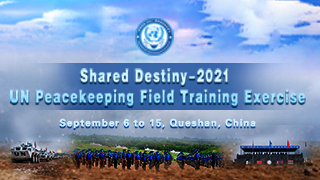By Zhao Long
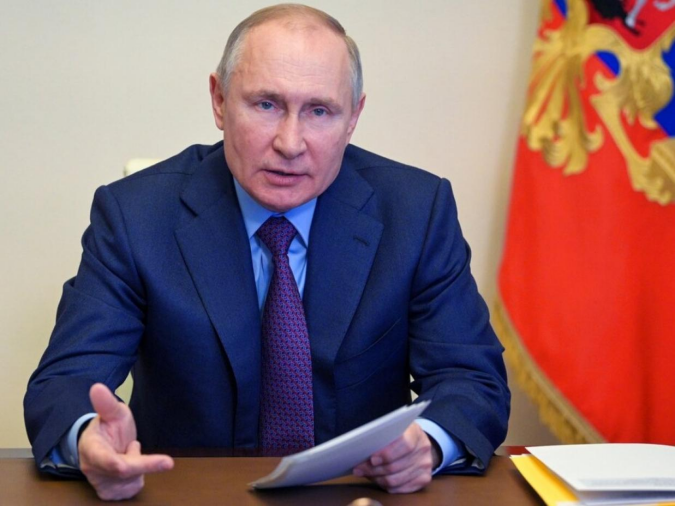
The "wheel-war-like" negotiations on security safeguards among Russia, the US, NATO and the Organization for Security and Cooperation in Europe (OSCE) have wrapped up, but none of the three dialogues yielded any substantial results. Since the first standoff on the Russia-Ukraine border last year, Moscow has displayed a unique "deterrence" throughout the grapple with the West while always having the initiative in its hand.
First, Russia highlights asymmetrical deterrence on security. While Russia and the US are on a par in the quantity of strategic nuclear weapons, Russia seems poised to catch up and overtake in tactical nuclear weapons, generating a powerful deterrence that would act as a “ballast” in its security struggle with the West. Moreover, resuming the strategic cruise of long-distance bombers, test-firing and assembling hypersonic missiles, and surfacing its strategic nuclear-powered submarine in the Arctic and test-firing missiles from it all demonstrate Russia’s capability of grappling with the West leveraged on comparative advantages.
Moreover, facing NATO’s frequent military exercises in the Black Sea recently and its better surface forces, Russia is trying to build a “security arc” on land around the Black Sea region by pushing the integration with Belarus, intensifying the security cooperation with Armenia, and taking other measures. It has also stepped up regular cruises and reconnaissance at the Black Sea and the Baltic Sea.
Second, Russia is determined to achieve its strategic goals. Russia is willing to pay any cost in holding its bottom line, such as withstanding over seven years of stringent sanctions for the Crimea event, and forcing into Syria in order to preserve a strategic pivot in the Middle East. On the other hand, it is also willing to make comprises or take a detour on details on the way toward the strategic goal. For instance, fully recognizing the critical role of Turkey in its handling of the relations with NATO and the US, Russia surprisingly chose to “bite the bullet” after its warplane was shot down and its ambassador was assassinated on Turkish soil, and eventually brought about close military cooperation between the two countries.
Third, Russia is unpredictable both in tactics and operation. From the Russia-Georgia conflict in 2008 to the referendum of Crimea in 2014 to join the Russian Federation, from the sending of military aircraft to help Venezuela in 2019 to the recent speedy assignment of peacekeeping troops to stabilize the situation in Kazakhstan and fulfill the Collective Security Treaty Organization (CSTO)’s responsibility for its member states – all these have shown that Russia’s tactical operations are often beyond the West’s prejudgment. Such a preference for beating its rivals to the action makes sure it can make good use of limited resources, deliver comprehensive and strategic objectives, and exert major influence.
Fourth, Russia is economically capable of “self-circulation”. As far as contention with the West is concerned, Russia’s economic structure dominated by trade in energy and raw materials has in a way given it more advantages as the products can be used as important strategic leverage. Its foreign trade dominated by oil and gas products has helped Moscow minimize the repercussions of economic sanctions, evaded technological choke-points and restrictions on market access, and bolstered its confidence and strength in the prolonged struggle with the West.
Fifth, Russia has a diplomatic tradition of being forceful and flexible at the same time. Russia is known for its highly flexible and pragmatic diplomatic policies. On the policy level, it used to be committed to “rejoining” Europe, acquiesced in the eastward expansion of NATO and the EU after joining the G8, initiated to mend the US-Russia relations several times, and offered to build a greater Eurasian partnership in the eastern hemisphere. In the meantime, always prioritizing realistic interests, it has adopted a “compete + compromise” approach when engaging with the US and tried to divide the EU while competing with it. It also boasts a strong ability to set the agenda, as well evidenced by the negotiation of the security guarantee agreement as a result of the border standoff with Ukraine.
Sixth, Russia is good at influencing public opinions. In addition to the traditional RIA Novosti and TASS, emerging media represented by RT has become more active in the international arena, which, with a different perspective from Western media, has become a key mouthpiece for Russia and an effective window for the non-Western world to receive and send out information.
Russia's deterrence in its games with the West is deeply rooted in its unique geo-environment, economic structure, history and culture, social consciousness, and diplomatic tradition. As the Russia-West struggle becomes more regular, diversified and complex, it's hard to determine which side is winning and which is losing based on one-time gains or losses or by any quantitative standards. However, a basic consensus that both sides must stick to is that political solution should outweigh military solution and dialogue is always better than conflict.
(The author is a senior researcher at the Shanghai Institutes for International Studies)
Editor's note: This article is originally published on huanqiu.com, and is translated from Chinese into English and edited by the China Military Online. The information, ideas or opinions appearing in this article do not necessarily reflect the views of eng.chinamil.com.cn.
